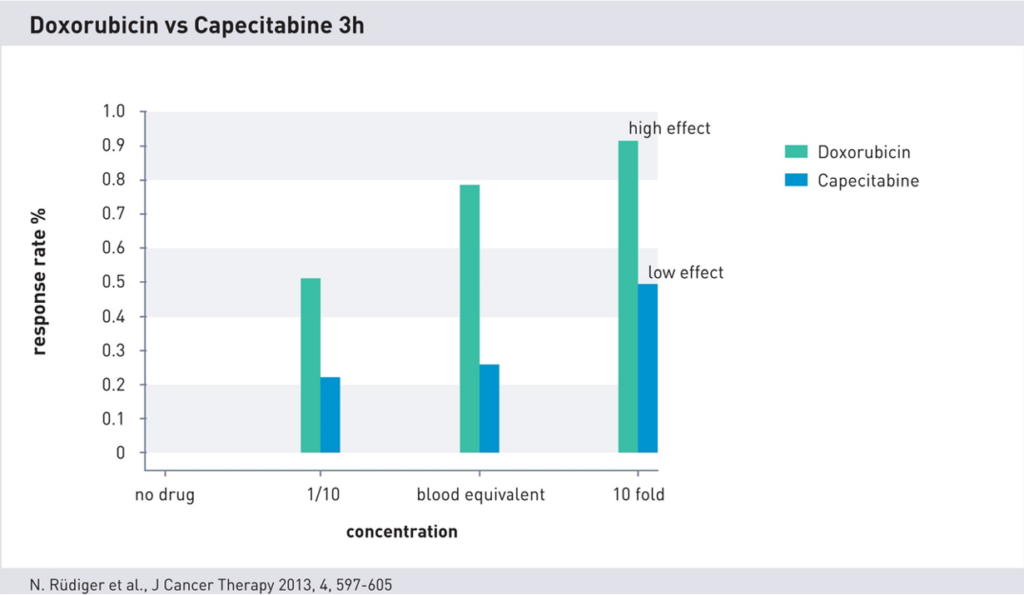Ideally, drug-testing should always be done before treating a tumor patient to see if the drugs will have any effect at all. Unfortunately, this is all too often not the case.
Status of School Medicine
There are many cancer diagnoses that are the same, such as breast cancer or colon cancer. However, cancer is a unique event. There has never been this cancer on this planet and there never will be again. Too many gene mutations (often several thousand) underlie the disease. New mutations are created with almost every cell division.
Cancer is therefore a very individual disease. And this is how the therapy approach should actually be. However, the standard often looks different. The physician performs a biopsy and receives more or less detailed patient data from the laboratory. In most cases, the tumor is removed by surgery. Then he looks up a “list” (guideline) and prescribes the drugs and therapies listed in that guideline.
Often guidelines work well, but unfortunately all too often they do not, because the table is based on statistical data and cannot speak for the individual case. Moreover, it refers to data from the tumor that was operated out and not necessarily to the tumor that remained in the body. These are the cells scattered from the original tumor, which often have different characteristics than the primary tumor. This is where maintrac® comes in, it can measure the drug sensitivity of the tumor cells remaining in the body.
Drug testing, what is it?
Tumor cells are often very stable and difficult to kill. Therefore, one measures the cytotoxicity (cell-killing properties), the sensitivity of the cells to certain chemicals. The problem here is that these chemicals can also kill healthy cells, which is why there are often the severe side effects associated with chemotherapy. Wouldn’t it now be good to know whether and which drug works at all, instead of taking a substance from a table and applying it untested?
maintrac® for the selection of the best drug

With maintrac® , various drugs can now be tested directly in the patient’s blood for their tumor cell-killing properties. They often differ from patient to patient. Thus, with maintrac® it is possible to find out which drug has the highest probability of efficacy already before a therapy. This analysis can be used by the physician and the patient as a basis for deciding how to proceed. Often better drugs are available than those mentioned in the guidelines. The physician now has the problem of possibly deviating from the guidelines, only this can violate hospital rules or cause insurance-related problems.
Course of the drug testing
The basis for drug testing is the patient’s blood and the quantitative determination of the tumor cells. For this purpose, the drug concentration is calculated and a measurement without drug and measurements with the correct drug concentration are performed. Measurements are now taken at time 0, 3h, 6h and 9h and the number of cells killed is counted. The picture shows a dying cell. Green, the cell is still alive – red, the cell has died.

A living cell (green surface) in presence of medication is slowly dying (red core)
When should drug testing be performed?
Drug testing should ideally be measured before therapy, but can still be performed during treatment. For testing, both conventional and alternative preparations can be tested. Substances that are available in liquid form, i.e. that can be administered to the patient as an infusion, are advantageous for testing.
Following the in vitro testing of the drugs, the course of treatment should be checked with the maintrac® cell count to determine whether the drugs used have a lasting effect on the tumor cells circulating in the blood. If necessary, it is possible to switch to other drugs. As a rule, a decrease in the cell count means that the therapy is successful.
maintrac®-drug testing
With maintrac® the efficacy of many drugs or alternative remedies can be tested. So far, more than 100 different substances have been tested in the laboratory. The listed drugs represent a small selection of the testable active substances, otherwise active substances can also be sent in by the treating clinic and tested by us. Just ask for it!
- Docetaxel
- Paclitaxel
- Cyclophosphamide
- Epirubicin
- Doxorubicin
- 5-Fluoruracil
- Gemcitabine
- Vinorelbine
- Cisplatin
- Carboplatin
- Oxaliplatin
- Helixor A, M oder P
- Iscador M, Q, U oder P
- Vitamin C
- Graviola
- DCA (Dichloracetat)
- Sulforaphane
- Hypericin
- Curcuma
- Artesunat
- others on request!
